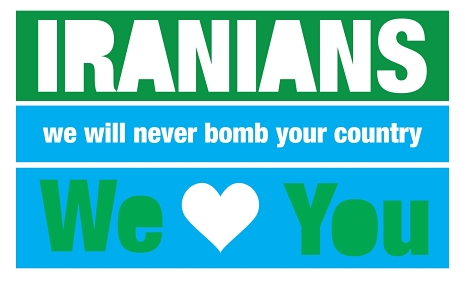 When you hear people in Israel talking about Iran these days, the hot topic is not whether there will be war or not. It’s whether they have showed any love to, or got any love from, and Iranian. As sappy as it sounds, it’s the truth.
When you hear people in Israel talking about Iran these days, the hot topic is not whether there will be war or not. It’s whether they have showed any love to, or got any love from, and Iranian. As sappy as it sounds, it’s the truth.
At the center of the new fashion in showing all this love is Facebook. This isn’t surprising, considering the role Facebook has played over the past two years in the Arab spring revolutions, informing on the conflict in Syria, and it’s general power to mobilize and organize groups of like-minded people.
But all the same, take a look at the statistics of Facebook’s current role in world affairs- it is more than surprising; it is heartwarming. The Israel-Loves-Iran Facebook page already has 45,319 likes, and the Iran-Loves-Israel has 11,691 likes. (In the 20 minutes since I started writing this post, the Israel-Loves-Iran got almost 100 more likes.)
The amazing thing about all of this from the ground in Israel is that the Facebook lovefest is affecting public discourse and perception. Iranians and Israelis are making a point of putting their hand on their heart when facing one another and offering each other friendship and peace. Unbelievable as it sounds, I heard someone tell a story about it just yesterday.
The most fascinating part of this social media-inspired show of solidarity is that it is outside of international relations paradigms. Nowhere in the allotted formulas for averting war between nations is there mention of the buffer that a public outpouring of expressions of love and friendship can create. It goes beyond public opinion or perception. People are actively trying to take matters into their own hands and avert war in the border-less realm of cyberspace.
That’s something Machiavelli could never have imagined.